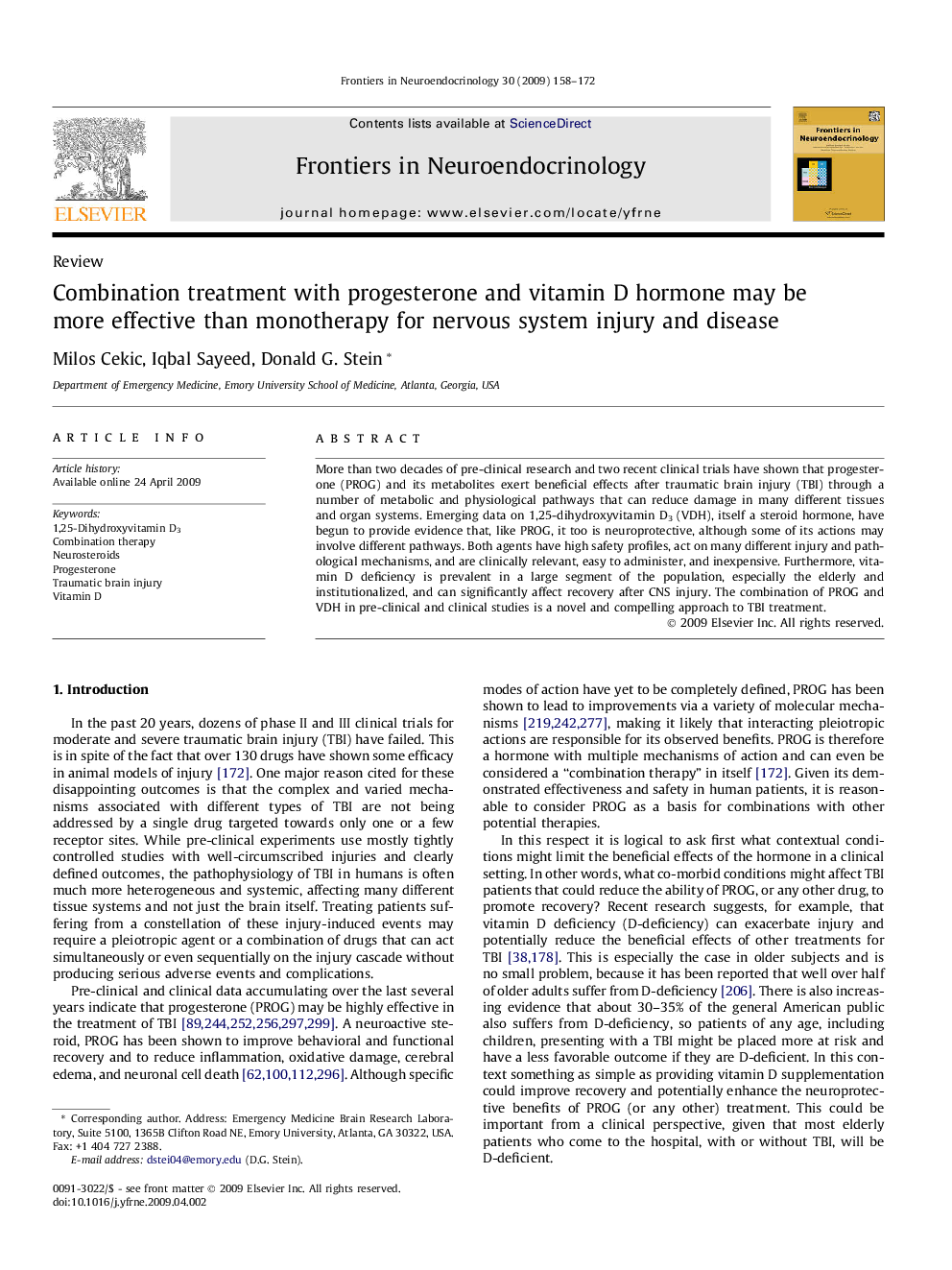| Article ID | Journal | Published Year | Pages | File Type |
|---|---|---|---|---|
| 2799546 | Frontiers in Neuroendocrinology | 2009 | 15 Pages |
More than two decades of pre-clinical research and two recent clinical trials have shown that progesterone (PROG) and its metabolites exert beneficial effects after traumatic brain injury (TBI) through a number of metabolic and physiological pathways that can reduce damage in many different tissues and organ systems. Emerging data on 1,25-dihydroxyvitamin D3 (VDH), itself a steroid hormone, have begun to provide evidence that, like PROG, it too is neuroprotective, although some of its actions may involve different pathways. Both agents have high safety profiles, act on many different injury and pathological mechanisms, and are clinically relevant, easy to administer, and inexpensive. Furthermore, vitamin D deficiency is prevalent in a large segment of the population, especially the elderly and institutionalized, and can significantly affect recovery after CNS injury. The combination of PROG and VDH in pre-clinical and clinical studies is a novel and compelling approach to TBI treatment.
